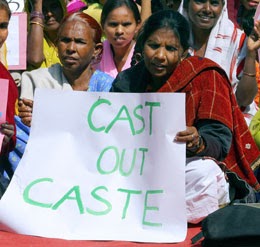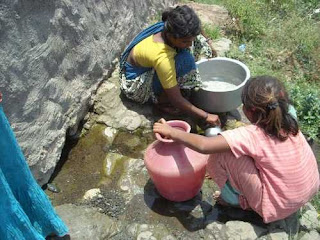A National Shame
The continued denial of basic rights to Dalits makes a complete mockery of the Indian state’s much-vaunted claims of being democratic and secular. Thousands of cases of atrocities against the Scheduled Castes & Scheduled Tribes are found to be unreported & unregistered due to political clot of the upper castes who exercise money power as well muscle power to nip such cases in the bud. Republic day celebrations have no meaning when a particular section of the society such as the downtrodden are socially & economically segregated from the mainstream.
A. Kalaimani, a Dalit woman village panchayat president of Karu Vadatheru village panchayat near Vadakadu, was allegedly prevented from hoisting the tricolour on the Republic Day by a group of caste Hindus. The group belonging to the Kallar community, led by Kumar, son of Rangammal, who is the vice-president of the village panchayat, allegedly pushed aside Ms. Kalaimani when she was about to hoist the national flag on the village panchayat office campus.
The village panchayat president told The Hindu on Saturday that she planned to hoist the tricolour at three places – the village panchayat office campus; Raja Kudiyiruppu, a residential colony; and the panchayat union primary school at Kanniyankollai. But, in view of the problem at the village panchayat office, she allowed the group to hoist the flag at the school and cancelled her programme at the residential colony. She has lodged a complaint with the Vadakadu police and submitted petitions to District Collector B. Maheswari and Superintendent of Police R. Tamil Chandran. Ms. Kalaimani said that she had alerted the police a week ago, seeking protection for the smooth conduct of the celebrations. To her surprise, no police personnel were deployed in time. (The Hindu 29-01-2012)
In the 65th year of our Independence, a Dalit woman’s plight that she was not allowed to hoist the tricolour for coming from a Dalit community is very sad and shameful indeed and shocks us if we are truly free. Even after 64 years of becoming independent, certain sections in Indian society continue to suffer from segregation. If the incident of a dalit woman Panchayat chief being prevented from hoisting the national flag couldn't raise ripples in Tamilnadu ruled by Dravidian parties, it clearly exposes the anti-Dalit sentiments of the upper castes and the official machinery. It is the duty of the government to ensure that weaker section is not deprived of their rights to hoist the national flag. Caste Hindus with muscle power and political power should not affect the morale of police.
The continued denial of basic rights to Dalits makes a complete mockery of the Indian state’s much-vaunted claims of being democratic and secular. Thousands of cases of atrocities against the Scheduled Castes & Scheduled Tribes are found to be unreported & unregistered due to political clot of the upper castes who exercise money power as well muscle power to nip such cases in the bud. Republic day celebrations have no meaning when a particular section of the society such as the downtrodden are socially & economically segregated from the mainstream.
Panchayat presidents belonging to Dalit communities and women in particular are still being discriminated against. State and district administration should intervene immediately and provide non-discriminatory and atrocity-free political environment for the Dalit chiefs to function independently and effectively. The State Government should ensure legal and administrative safeguards and guarantees enshrined in the Constitution by booking the accused under the provisions of the Prevention of Atrocities against SC/ST Act, 1989.


